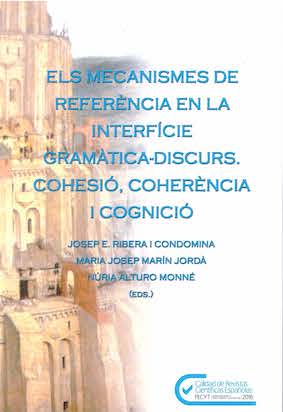Idiomatic expressions and anaphoric reference in functional discourse grammar
DOI:
https://doi.org/10.7203/qf.23.13527Keywords:
English idiomatic expressions, variation in idiomatic expressions, anaphoric reference, context, Discursive-Functional Grammar Abstract
Abstract
This paper deals with a special type of anaphoric relation that consists in a reference through/to a part of a fixed idiomatic experience. It is proved that, contrary to what is generally assumed, such references are not necessarily grammatically or stylistically marked. Instead, they are part of several productive usage patterns. With corpus data and a discursive-functional grammatical approach, I provide a theoretically-substantiated analysis of each of these patterns. This analysis shows their production and interpretation processes, accounts for their systematicity and productivity, and puts forth an explanatory proposal of the cognitive effort and communicative advantages of their use.
 Downloads
Downloads
Downloads
Published
How to Cite
-
Abstract741
-
PDF423
Issue
Section
License
 Este obra está bajo una licencia de Creative Commons Reconocimiento-NoComercial-SinObraDerivada 4.0 Internacional.
Este obra está bajo una licencia de Creative Commons Reconocimiento-NoComercial-SinObraDerivada 4.0 Internacional.
Authors who publish with this journal agree to the following terms:
- Authors retain copyright and grant the journal right of first publication with the work simultaneously licensed under a Creative Commons Attribution License that allows others to share the work with an acknowledgement of the work's authorship and initial publication in this journal.
- Authors are able to enter into separate, additional contractual arrangements for the non-exclusive distribution of the journal's published version of the work (e.g., post it to an institutional repository or publish it in a book), with an acknowledgement of its initial publication in this journal.
- Authors are permitted and encouraged to post their work online (e.g., in institutional repositories or on their website) prior to and during the submission process, as it can lead to productive exchanges, as well as earlier and greater citation of published work (See The Effect of Open Access).



